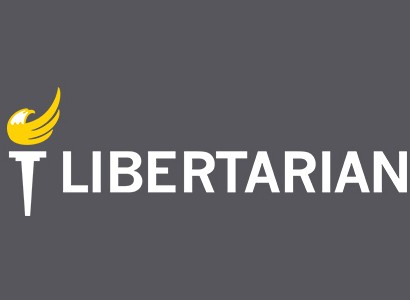Note: This is the first in a series examining the social positions of several minor political parties. A previous series covered the Democratic Party platform and the Republican Party Platform.
Although minor parties — often called “third parties” to distinguish them from the dominant two — have always been a part of American politics, the dissatisfaction with the Republican and Democratic parties in the current election season has led some Christians to give them more consideration than usual. To help Christians think about voting in a way that will most benefit the welfare of our nation (Jeremiah 29:7), this series will provide, without commentary, an outline of various minor party platforms as they relate to several social issues.
Unfortunately, because there are roughly 50 minor political parties in America this series will not be able to cover them all, so we’ll focus only on the Libertarian Party, the American Solidarity Party, the Green Party, and the Constitution Party. (The choice is obviously arbitrary and selective, but other parties will be added if there is sufficient interest/demand.)
In covering these platforms there are two issues to note.
First, unlike with the two major parties, the nominees of the minor parties often have no direct control over their party’s platform. For this reason, the positions held by the particular presidential candidates may differ radically from the positions held by the party. (For example, the Libertarian Party presidential and vice-presidential candidates, Gary Johnson and William Weld, differ substantially with their party’s platform on a number of issues.)
Second, minor parties tend to focus more on broad principles than specific policy prescriptions. This is especially true when it comes to social issues. Wherever possible, I’ll try to highlight the direct policy positions. Otherwise I’ll attempt to summarize their underlying philosophy on a public policy area.

Here are the positions of the Libertarian Party as outlined in their 2016 Platform:
General Principles
• Believe that all individuals have the right to “exercise sole dominion over their own lives, and have the right to live in whatever manner they choose, so long as they do not forcibly interfere with the equal right of others to live in whatever manner they choose.”
• Supports a general “the right to life” and the prohibition of the initiation of physical force against others by government. {Editor’s Note: The way the LP uses the phrase “right to life” is not the same as the way the term is used by anti-abortion groups.]
• Supports a broad-based “right to liberty of speech and action.”
• Opposes all attempts by government to abridge the freedom of speech and press.
• Opposes government censorship in any form.
• Supports a broad-based “right to property” and opposes all government interference with private property, such as confiscation, nationalization, and eminent domain.
• Supports laws that prohibit robbery, trespass, fraud, and misrepresentation.
• Opposes any government interference in areas of voluntary and contractual relations among individuals.
• Opposes any requirement that forces individuals to “sacrifice their lives and property for the benefit of others.”
• Opposes any initiation of force by any individual, group, or government against any other individual, group, or government.
• Supports the concept of “self-ownership” — that individuals “own their bodies” and have rights over them that other individuals, groups, and governments may not violate.
Abortion
• “Recognizing that abortion is a sensitive issue and that people can hold good-faith views on all sides, we believe that government should be kept out of the matter, leaving the question to each person for their conscientious consideration.”
Death Penalty
• Opposes the administration of the death penalty by the state.
Discrimination
• Supports allowing members of private organizations to retain their rights to set whatever standards of association they deem appropriate, and “individuals are free to respond with ostracism, boycotts and other free-market solutions.”
• Opposes the government allowing sexual orientation, preference, gender, or gender identity to have any “impact on the government’s treatment of individuals, such as in current marriage, child custody, adoption, immigration or military service laws.”
Education
• Supports allowing parents to determine the education of their children, without interference from government.
• Supports allowing parents to have control of and responsibility for all funds expended for their children’s education.
Environment
• Supports clear definition and enforcement of individual rights and responsibilities regarding resources like land, water, air, and wildlife.
• Supports restitution to injured parties when environmental damages can be proven and quantified in a court of law.
Governance and Regulation
• Opposes any government regulations that affects an individual’s right to sole dominion, except when given with the individual’s consent.
• Supports the abolishment of all federal programs and services not required under the U.S. Constitution.
Individual Liberty
• Supports interpreting the Fourth Amendment prohibition on unreasonable search and seizure to include records held by third parties, such as email, medical, and library records.
• Opposes any governmental regulations to define, license or restrict personal relationships.
International Aid
• Opposes all U.S. government foreign aid.
Justice Issues
• Supports limiting criminal laws to violations of the rights of others through force or fraud, or to deliberate actions that place others involuntarily at significant risk of harm.
• Opposes all laws that prohibit the use of drugs for medicinal or recreational purposes.
• Supports the “common-law right of juries” to judge not only the facts but also the justice of the law (i.e., jury nullification).
Natural Rights
• “We reject the idea that a natural right can ever impose an obligation upon others to fulfill that ‘right.’”
Parental Rights
• Supports allowing parents, or other guardians, to have the right to raise their children according to their own standards and beliefs. (Their position adds the caveat, “This statement shall not be construed to condone child abuse or neglect.”)
Religious Freedom
• Supports the freedom to engage in or abstain from any religious activities that do not violate the rights of others.
• Opposes government actions which either aid or attack any religion.
Refugees
• Says that “political freedom and escape from tyranny demand that individuals not be unreasonably constrained by government in the crossing of political boundaries” yet notes that “we support control over the entry into our country of foreign nationals who pose a credible threat to security, health or property.”
Same-Sex Marriage
• Believes that “government does not have the authority to define, license or restrict personal relationships” and that “consenting adults should be free to choose their own sexual practices and personal relationships.”





